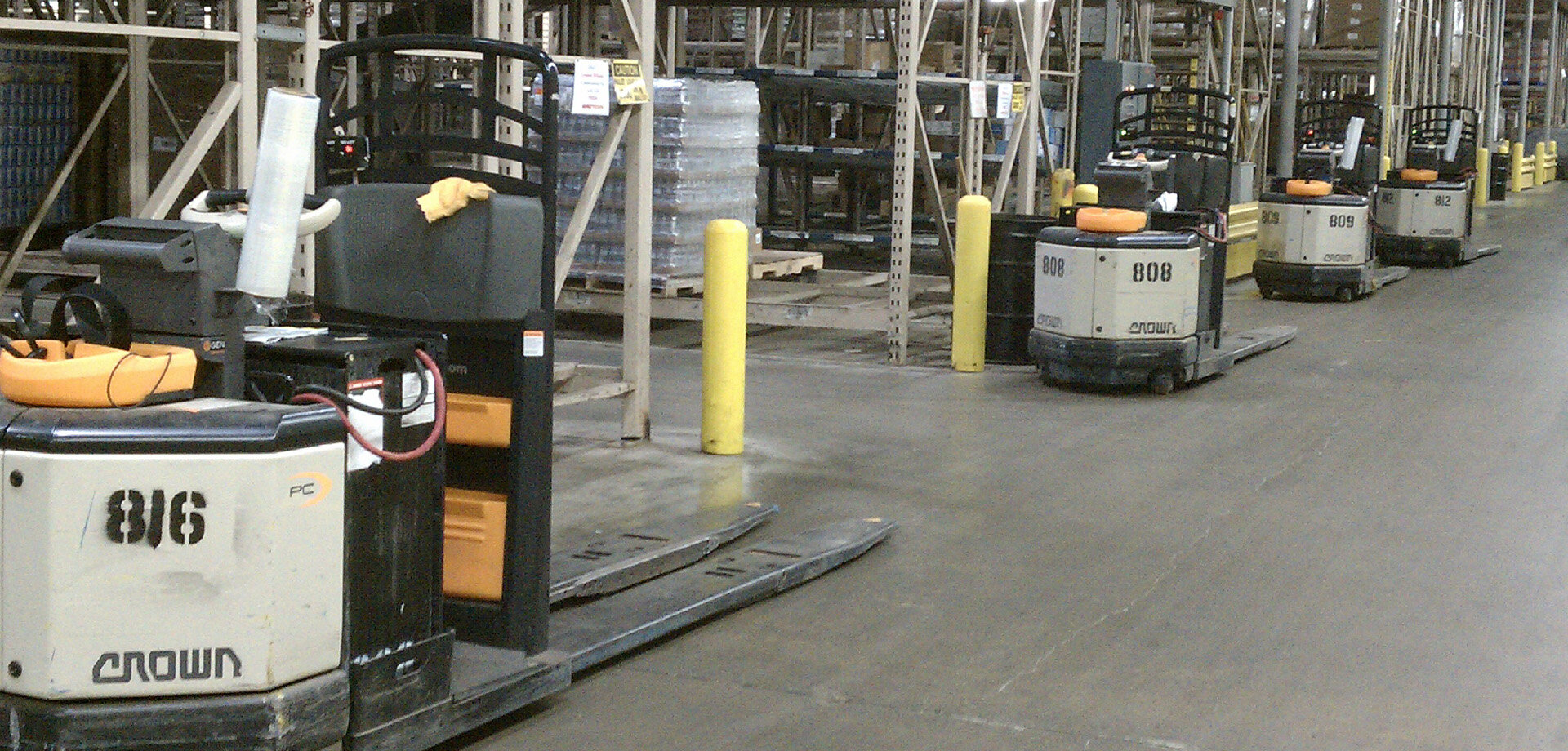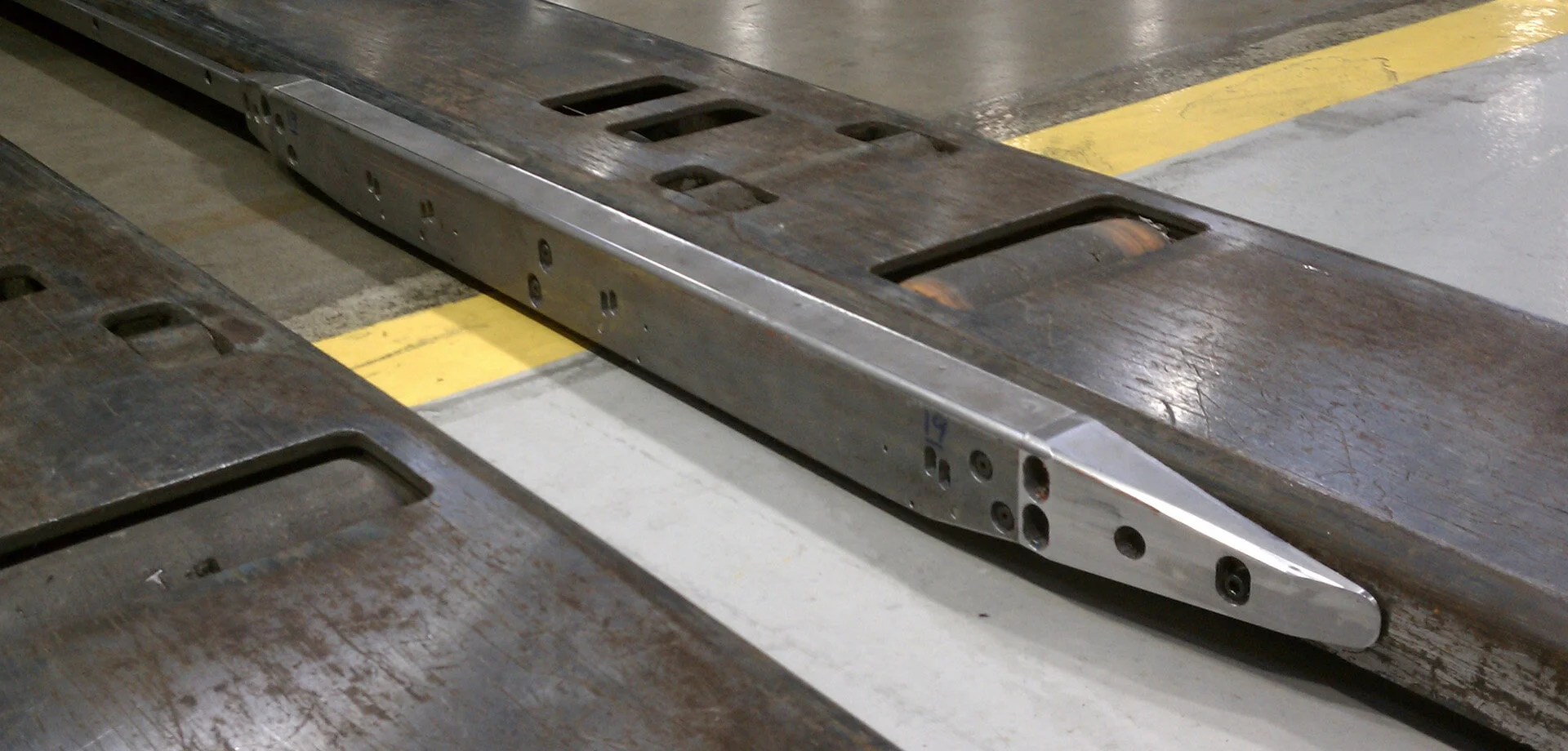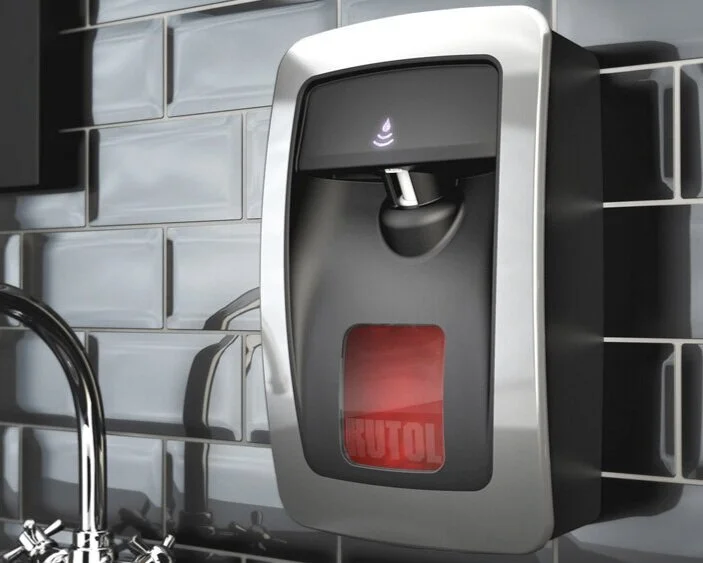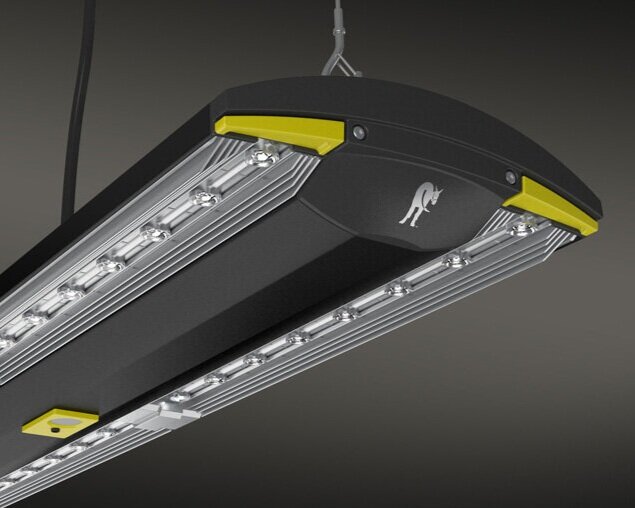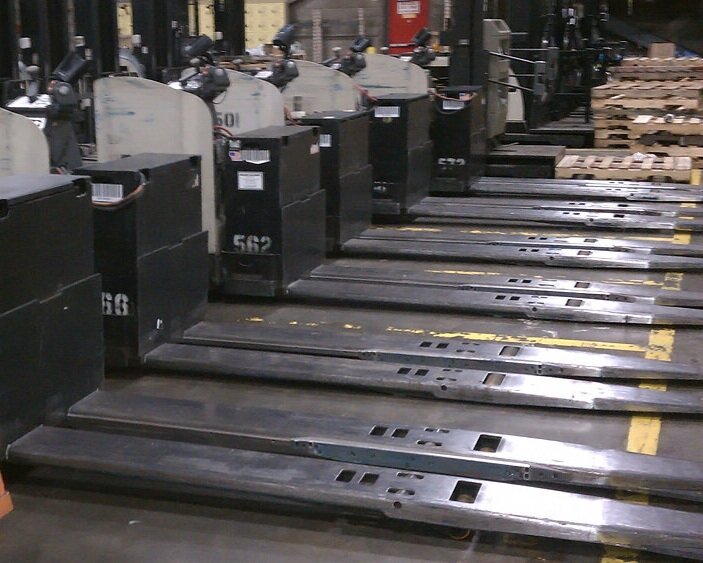
Walkie Pallet Sensor
Reducing Wooden Pallet Damage
CHEP is a global leader in shipping pallet and container pooling (sharing) services, issuing millions of pallets per year to the major North American retail distributors.
Many of these pallets are traditional wooden design, familiar “blue pallets” seen in stores such as Walmart and Sam’s Club. Wood pallets are inexpensive and strong, but can become damaged over time. CHEP focuses attention not only on making the best pallets for strength, durability and price, but also on opportunities for improving the pallet shipping system as a whole.
Zukun was tasked to design a system to reduce or eliminate damage to pallets that are handled with electric pallet jacks (walkies). Damage to pallets typically occurs when pallet jacks are not properly positioned when lifted. If the lifting wheels of the pallet jack are positioned on or near the bottom boards of the pallet, the pallet boards may be torn off or broken.
The engineering solution was to develop a device to be retrofitted to Crown® and Raymond electric pallet trucks. Using a combination of board sensors and LED indicators, the device informed the truck operator when they were in the correct position for raising the pallet, or when they were misaligned and needed to adjust.
Over two dozen “Walkie Sensor” prototypes were retrofitted and field-tested in major distribution centers in Memphis, Charlotte, Chicago, and Montreal over a two year period.
The mechanical and electrical feedback provided by the device allowed the pallet jack operators to quickly and positively know when it was safe to lift a pallet, rather than “estimating” or going by “feel” as they had been, thus improving speed and productivity while reducing pallet damage. A patent has been issued for the Walkie Sensor technology, and the potential exists to collaborate with manufacturers to integrate the device into electric pallet jacks.
Client
CHEP
Services
Industrial Design
Engineering
Share
